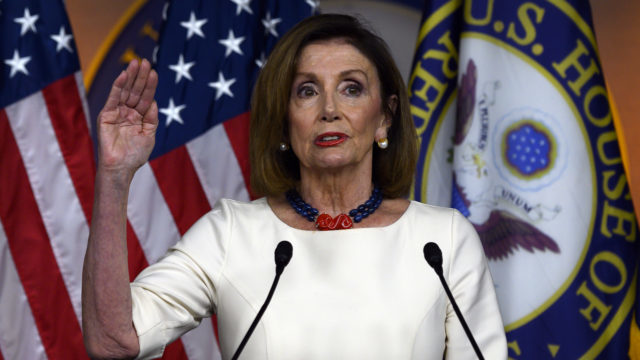
In a rare joint message, Democratic and Republican congressional leaders on Saturday rejected the Trump administration’s offer to conduct rapid coronavirus screening on senators who will return to Washington next week, stating that the tests should be reserved for the public.
Democratic House Speaker Nancy Pelosi and Republican Senate Majority Leader Mitch McConnell, normally fierce political rivals, issued a statement announcing that Congress was “grateful” for the offer, but that they would “respectfully decline.”
“Congress wants to keep directing resources to the front-line facilities where they can do the most good the most quickly,” they said.
The United States’s 100 senators, many of whom are advanced in age, will return to Washington on Monday following a recess that was prolonged due to the pandemic.
President Donald Trump had tweeted that there “is tremendous CoronaVirus testing capacity in Washington for the Senators returning to Capital Hill on Monday.”
In recent weeks, Congress has worked to pass measures to revive the American economy, hard-hit by the coronavirus crisis.
However, Pelosi said her chamber’s 435 lawmakers would not return to Washington for at least another week, in step with guidelines from the Capitol’s attending physician.
Trump derided the move, tweeting that the House “should return but isn’t because of Crazy Nancy P.”
The Trump administration announced on Friday that it would send portable devices to the Senate to quickly diagnose any coronavirus cases.
McConnell and Pelosi said however they would follow testing protocols already in place until “these speedier technologies become more widely available.”
The United States is the country the hardest-hit by the pandemic with some 66,000 deaths and more than 1.1 million cases of the disease, according to data from Johns Hopkins University



